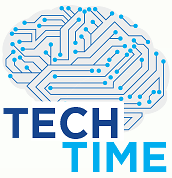Technology is constantly moving forward, but progress is not always linear; sometimes a discipline will see rapid innovation, other times change proceeds more as refinement rather than reinvention. Mobile phones provide a prime example of such technological advancement. While early models of mobile phones changed dramatically in size and scope, the modern smartphone has been conceptually similar for the past several years.
Dror Ben-Zeev, Ph.D., a professor of psychiatry and behavioral sciences at the University of Washington, believes that mental health professionals need to recognize and take advantage of the current state of mobile phones and other novel technologies to enhance mental health services.
“There will still be breakthroughs in hardware and software, but we are at a stage of maturation with this technology where we should be moving more into real-world deployments as opposed to research experiments,” he told Psychiatric News.
This statement has a personal connection for Ben-Zeev. He has conducted and overseen numerous research studies using mobile platforms and social media to aid both physician management and patient self-management of severe mental illness (SMI) such as schizophrenia.
“We know that people with SMI have access to devices, are willing and able to use these devices, and can benefit from technology-based interventions,” Ben-Zeev said.
Now, it’s up to mental health professionals to help patients navigate the many options for technology-based interventions in the market today, he added.
To explore the use of new technology to advance mental health services, Psychiatric Services has launched a column called “Technology and Mental Health,” for which Ben-Zeev serves as editor. His inaugural article was published online on December 15, 2016.
Ben-Zeev said he sees the column as an ideal venue to invite a range of stakeholders including providers, patients, administrators, and policymakers to discuss how to use innovative technologies or make use of existing technologies in innovative ways to improve the lives of patients.
In addition to feasibility studies and pilot clinical trials, the column will feature opinion pieces, policy discussions, and first-person accounts of how technology impacts health care.
Steven Daviss, M.D., president of FUSE Health Strategies LLC (a health care consulting group) and chair of APA’s Committee on Mental Health Information Technology, said that he thinks this new column will be an asset for the mental health community, though it is only one of many measures that are needed.
“We have been seeing a push toward more integrated care built around teams, especially in Medicare patients,” Daviss said. He pointed to the decision by CMS to reimburse clinicians providing mental health services in collaborative care settings (
Psychiatric News, December 2, 2016) as one recent example of this push.
“Starting this year I think there will be an acceleration in implementing care coordination services into practice to improve integrated care,” he told Psychiatric News. Such programs are likely to take advantage of technology tools such as telehealth, electronic health records, and remote patient monitoring, he said.
Just as psychiatrists have a role to play in educating and empowering their patients about the latest advances in digital technologies, Daviss and Ben-Zeev said they believe organizations like APA have a role to play in educating psychiatrists about the ever-changing landscape of technology in mental health services.
One example of APA’s work in this realm is the recent development of a tool clinicians can use to evaluate mental health smartphone applications—including issues related to privacy and data sharing—so they can find suitable apps for patients (
Psychiatric News, January 6).
Daviss led a hands-on workgroup at the 2016 IPS: Mental Health Services Conference that went through the evaluation tool step-by-step and highlighted what to look for in a “good” app.
He told Psychiatric News that he received positive feedback and believes the inclusion of more technology workshops at APA meetings could benefit many psychiatrists. ■
An abstract of Ben-Zeev’s column “Technology in Mental Health: Creating New Knowledge and Inventing the Future of Services” can be accessed
here. Information on evaluating mental health apps is posted on APA’s
website.


